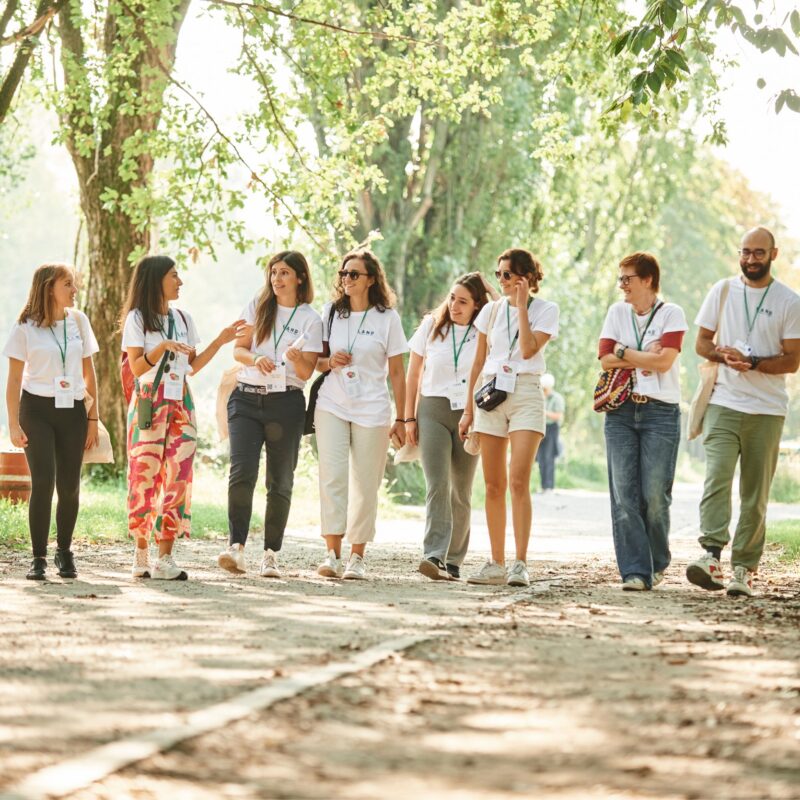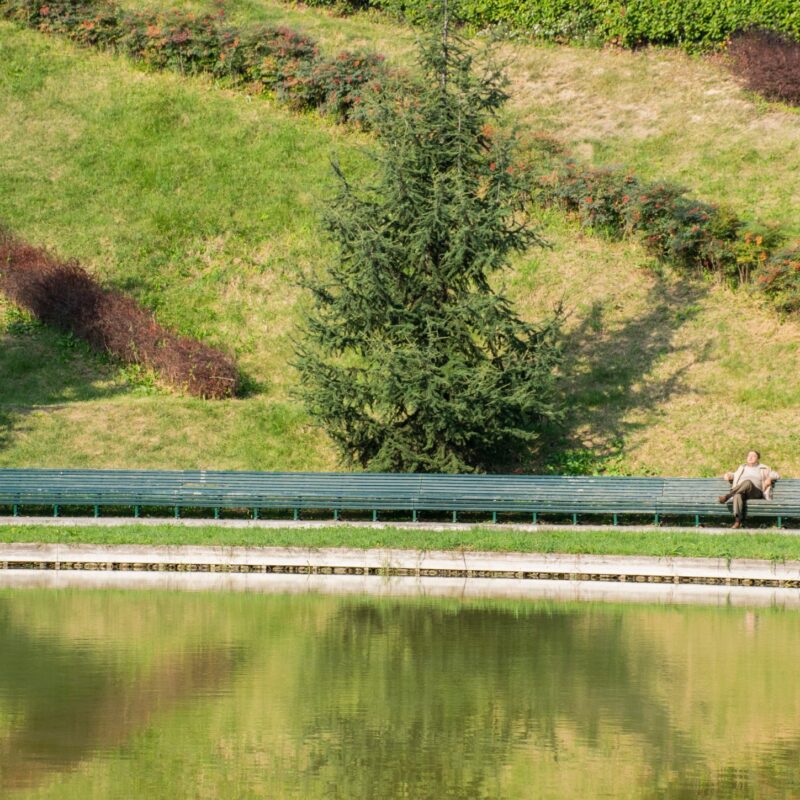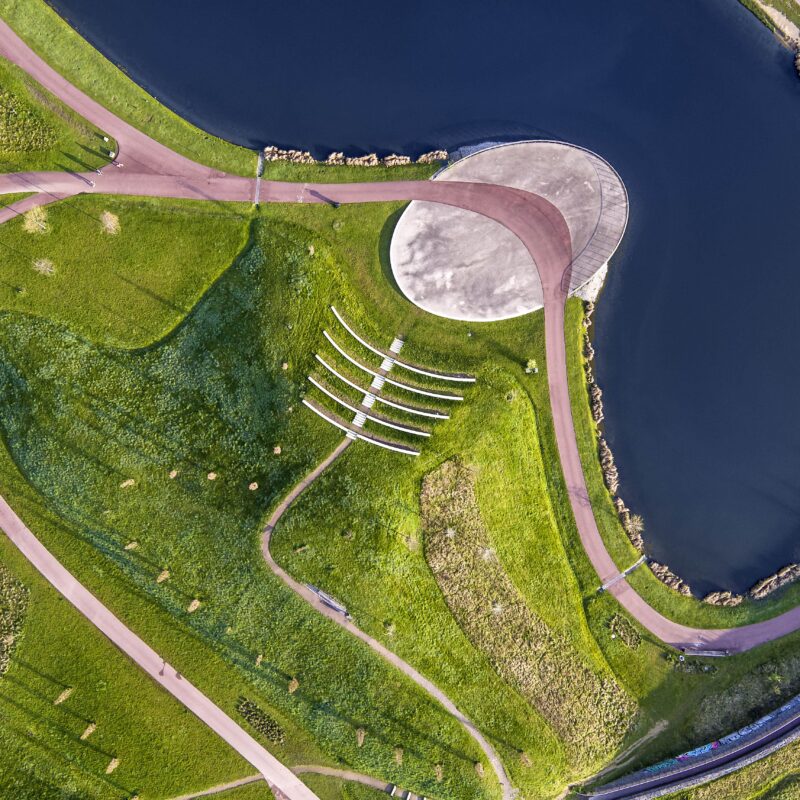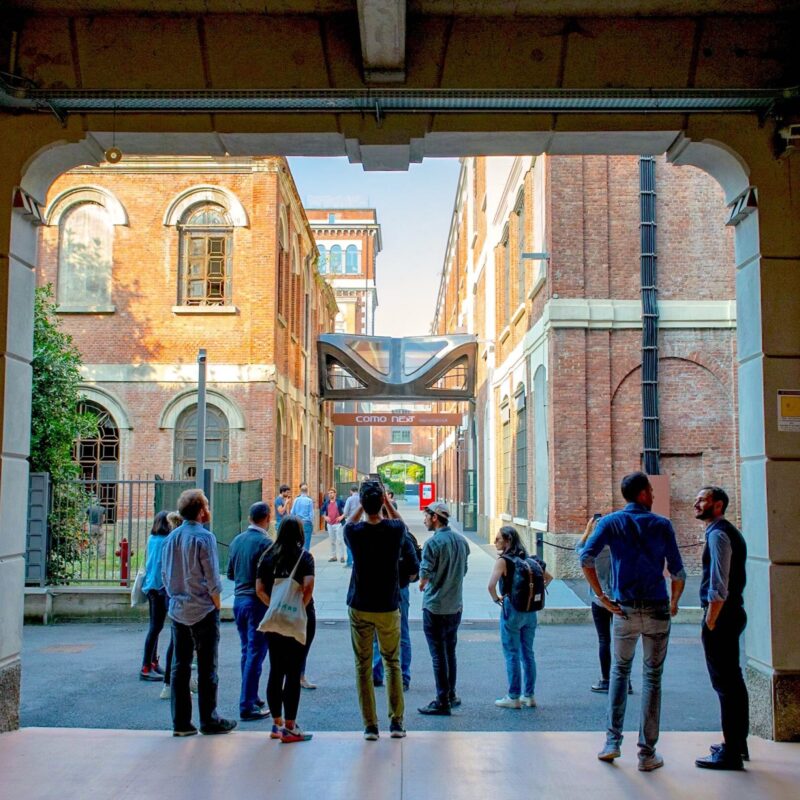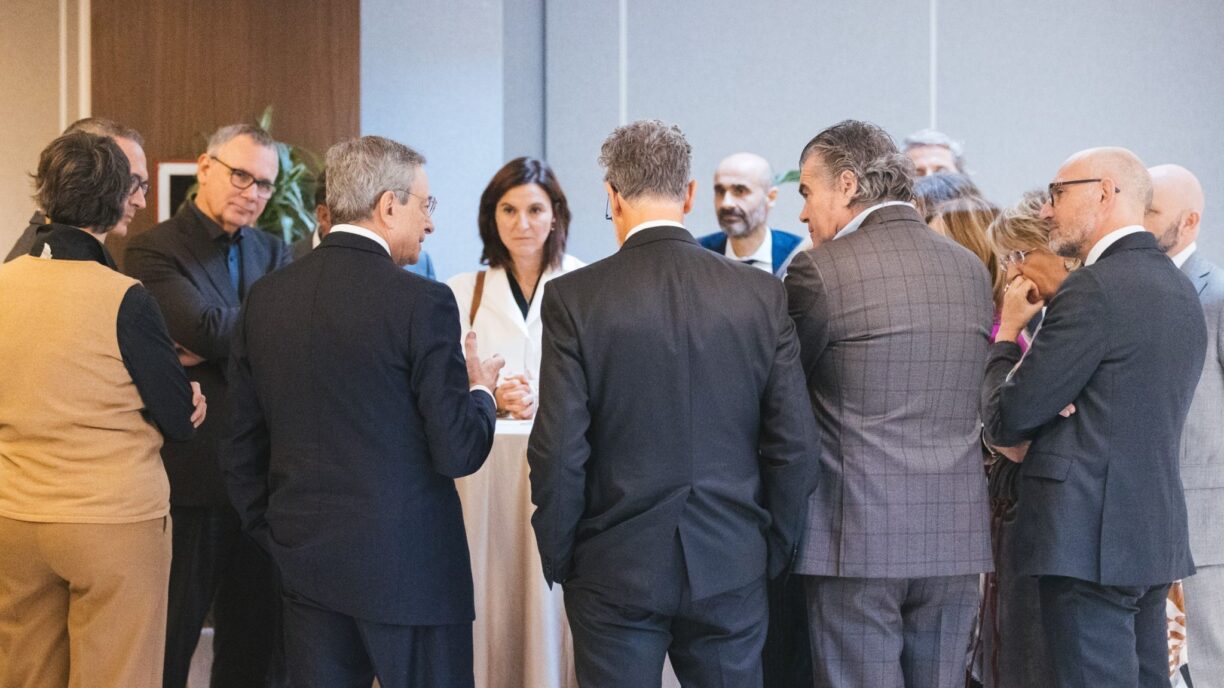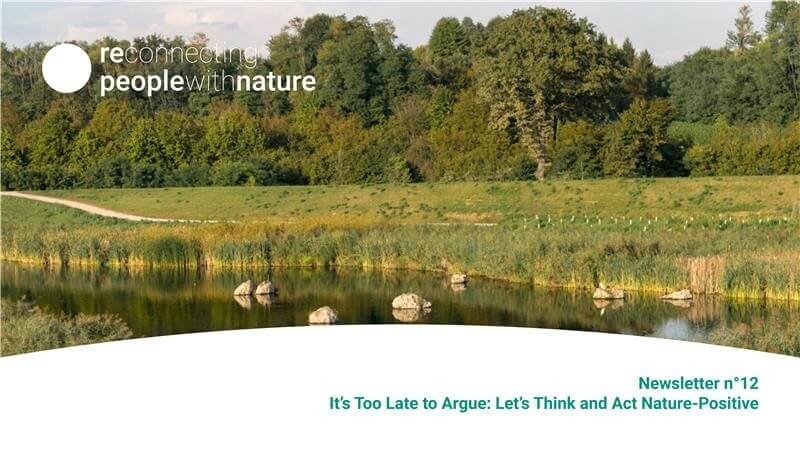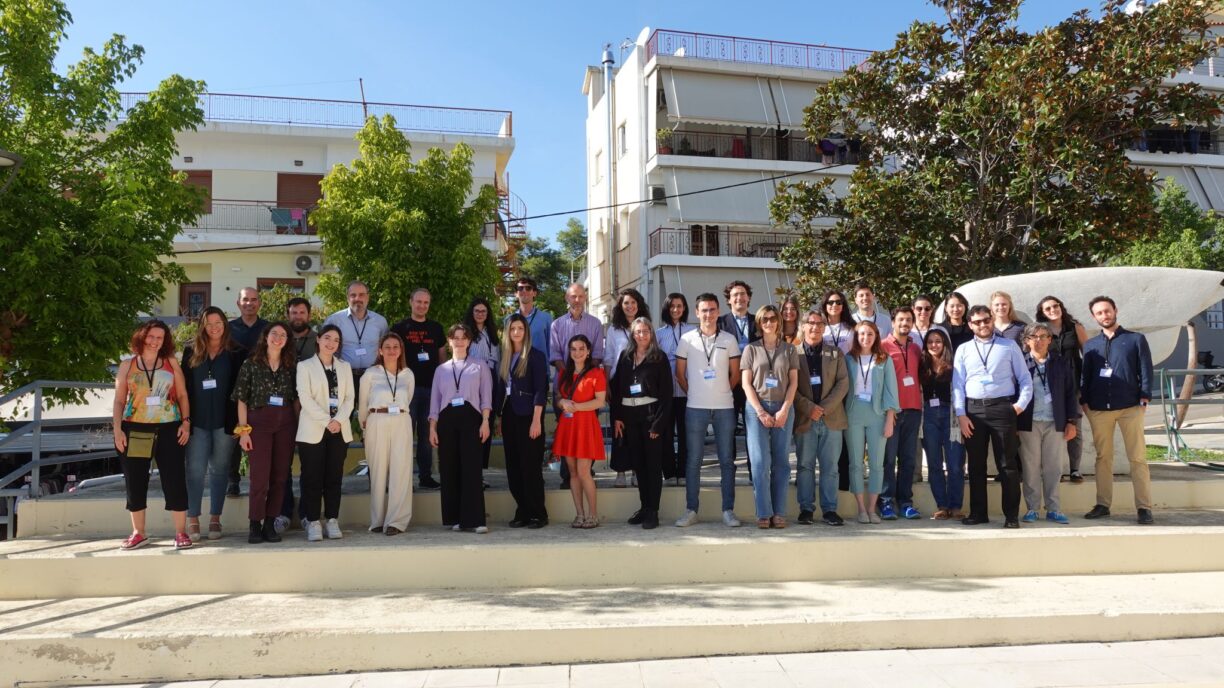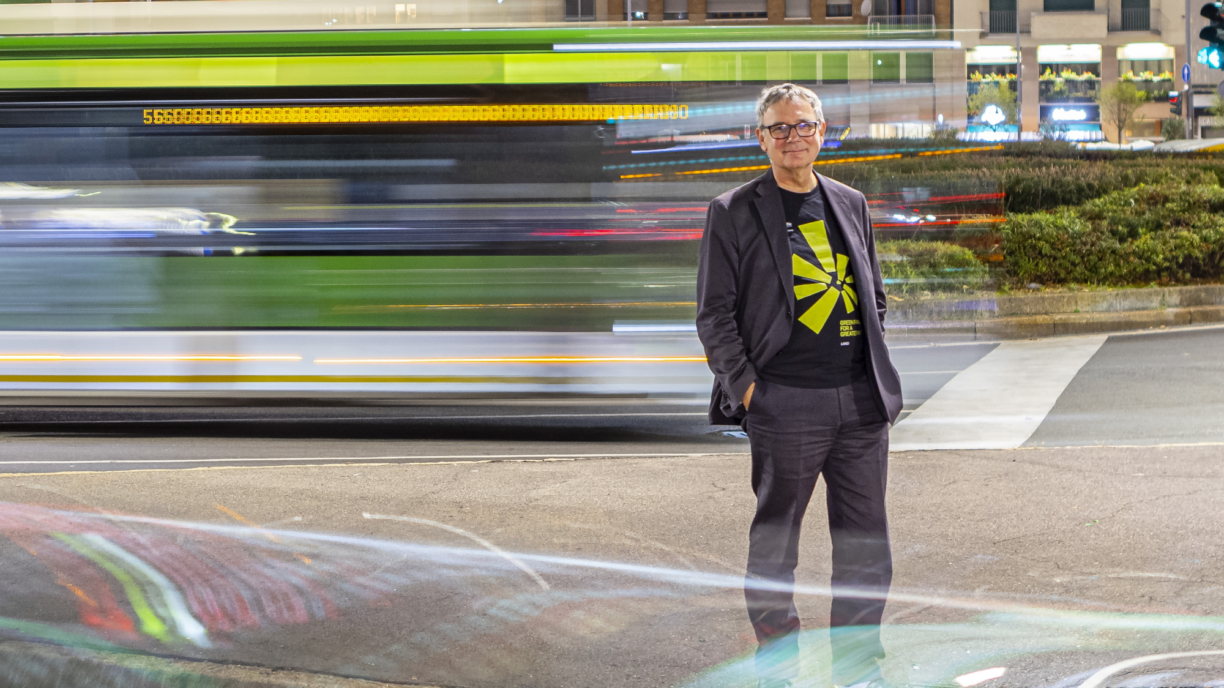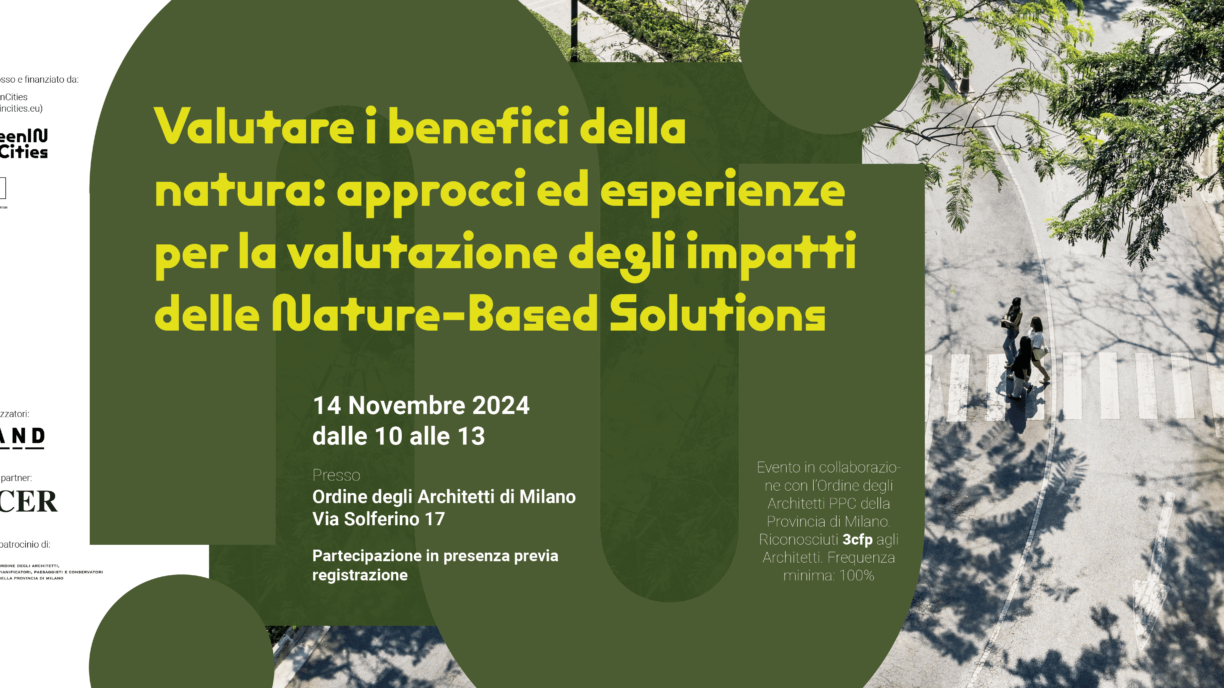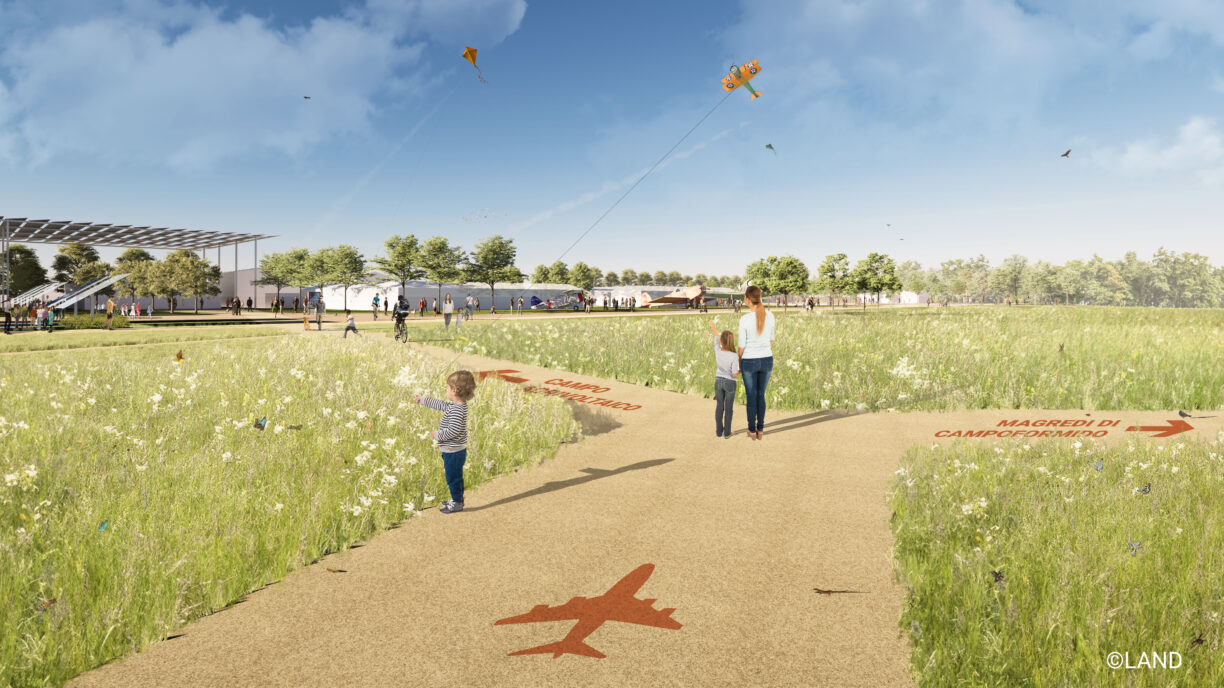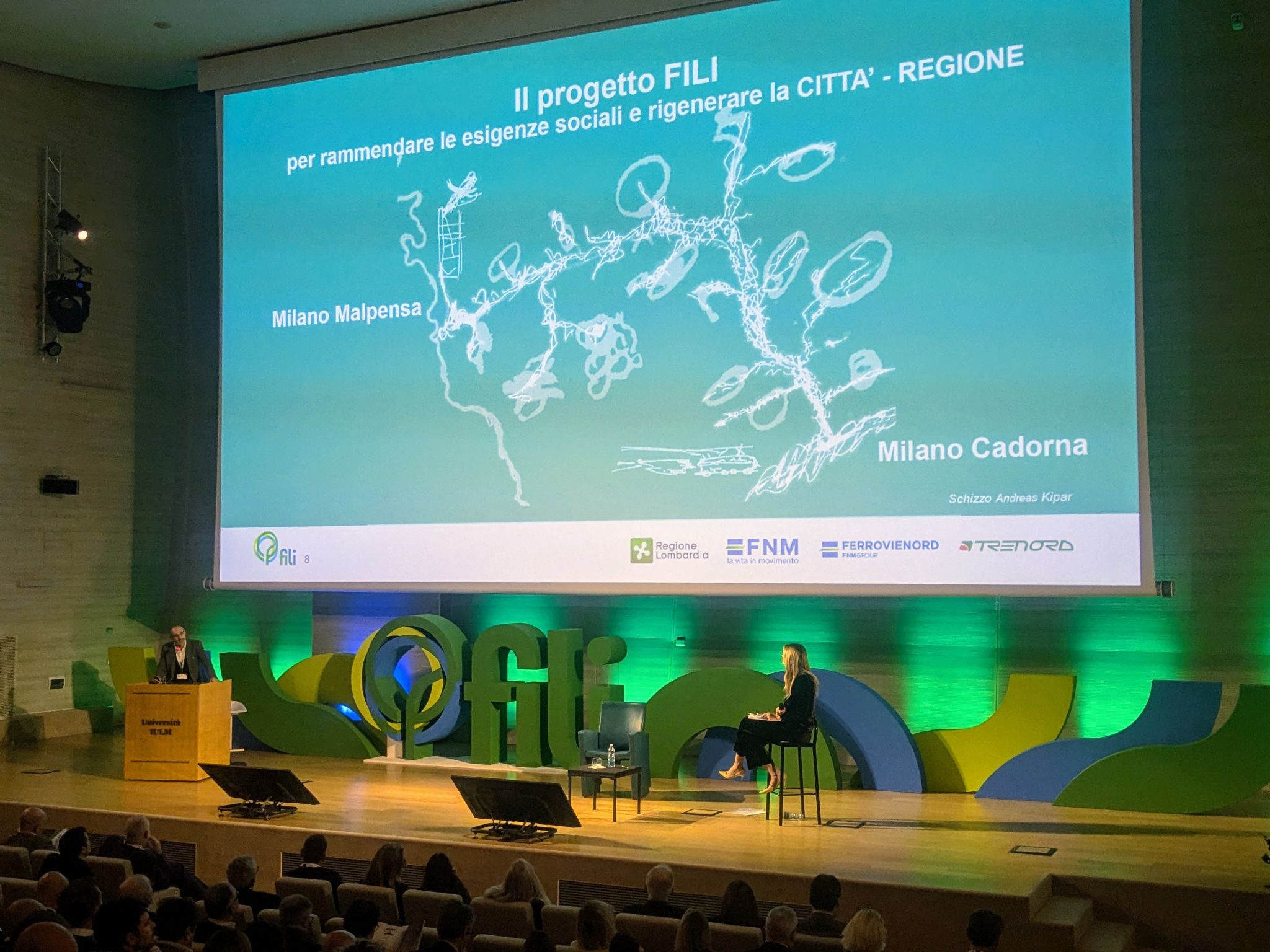
FILI: Transforming Lombardy’s Urban Landscape through Regeneration and Connectivity
Matteo Pedaso spoke at an event hosted by the IULM University in Milan, shedding light on the FILI project, a territorial regeneration initiative led by Regione Lombardia, FNM, Ferrovienord, and Trenord.
Thursday 28 November, LAND Partner and Senior Director, architect Matteo Pedaso, spoke at an event hosted by the IULM University in Milan, shedding light on the FILI project, an ambitious initiative led by Regione Lombardia, FNM, Ferrovienord, and Trenord. This transformative project is redefining Lombardy’s urban and environmental future, addressing sustainability, mobility, and the revitalisation of disused areas.
“For Lombardy, FILI represents a unique opportunity to breathe new life into disused areas, transforming them into engines of innovation that integrate economic development, environmental protection, and landscape enhancement,” said Pedaso during his address.
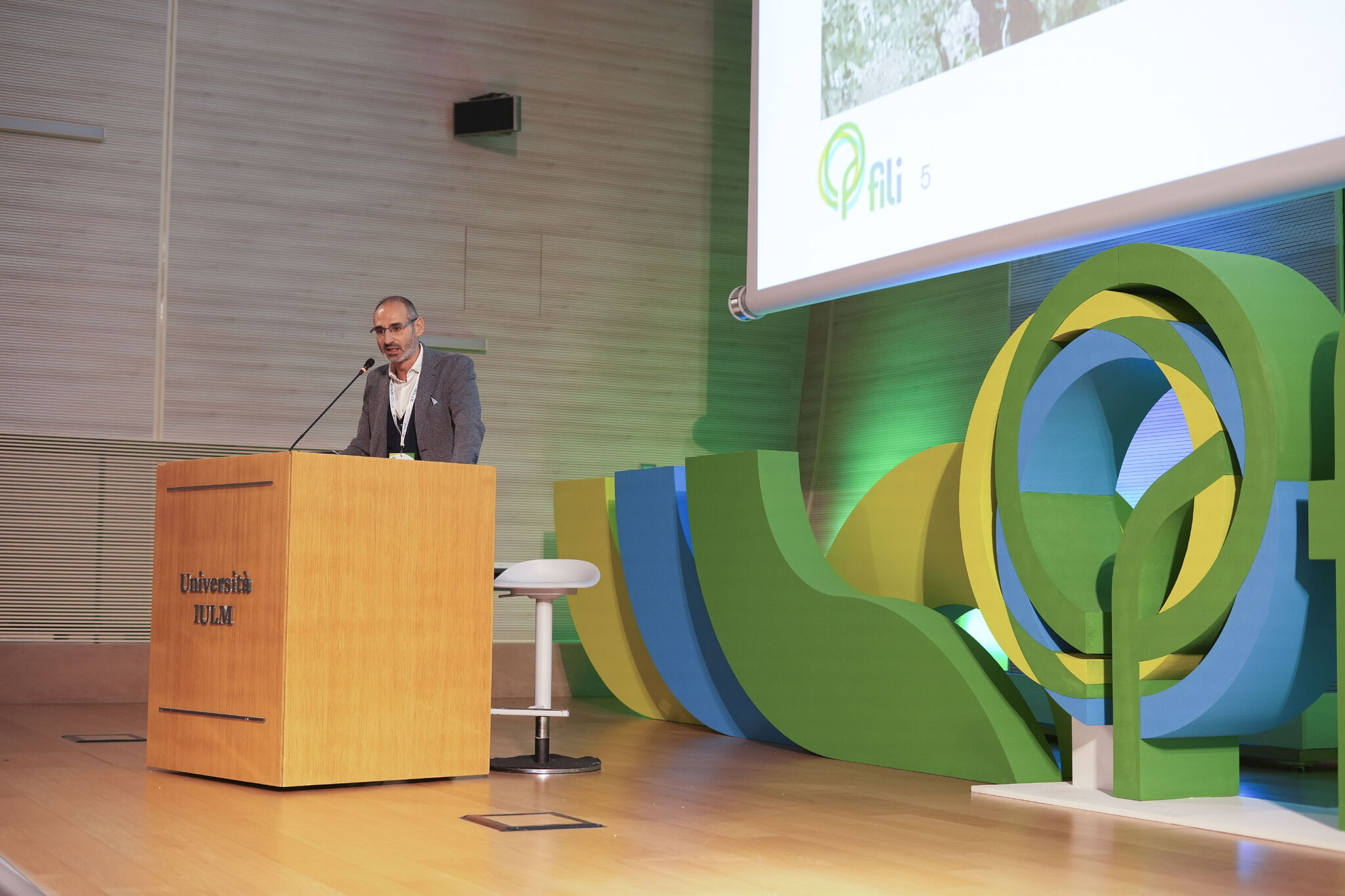
Matteo Pedaso speaking at FILI, 28 November 2024, IULM Milan. Image courtesy FILI
FILI is emblematic of a large-scale reimagining of the Milanese urban region, one of Europe’s most significant urban crossroads. The initiative seeks to unlock this macro-regional area’s potential, creating opportunities beyond the city of Milan to embrace the broader territory.
One of the key elements of FILI is the Cadorna-Malpensa Supercycle Highway, which exemplifies the project’s vision. More than just a cycling route, it is a platform for new relationships within the urban continuum, promoting sustainable mobility and fostering collaboration between municipalities. “This supercycle highway connects places and transforms how we perceive and use the region. It creates new synergies, reshapes relationships, and serves as a model for sustainable infrastructure in Europe,” Pedaso remarked.
At its core, FILI is about rethinking the existing infrastructure to improve the quality of life for millions of people across Lombardy. By integrating environmental restoration, cultural heritage, and innovative mobility solutions, the project addresses some of the most pressing challenges of our time.
Key features include:
- Revitalising disused railway areas, such as the pilot section in Solaro, designed by LAND in collaboration with Arcadis, where an old railway line is being repurposed into a green mobility corridor.
- Landscape regeneration, reconnecting urban environments with their natural and cultural assets, transforming scars of industrialisation into dynamic and interconnected urban landscapes.
- Promoting sustainable development, aligning with global efforts to combat climate change while fostering local economic growth.
“FILI inspires projects that transcend administrative boundaries, uniting stakeholders under a shared vision. It is not only a strategic plan but a laboratory of ideas for territorial renaturalisation, reconnecting people and places, and reshaping perceptions of our cities,” Pedaso added.
As a cornerstone of Regione Lombardia’s commitment to innovation and sustainability, FILI demonstrates how infrastructure can drive positive change. It highlights the importance of integrating green and mobility networks and reaffirms the role of design in fostering collaboration and improving lives.
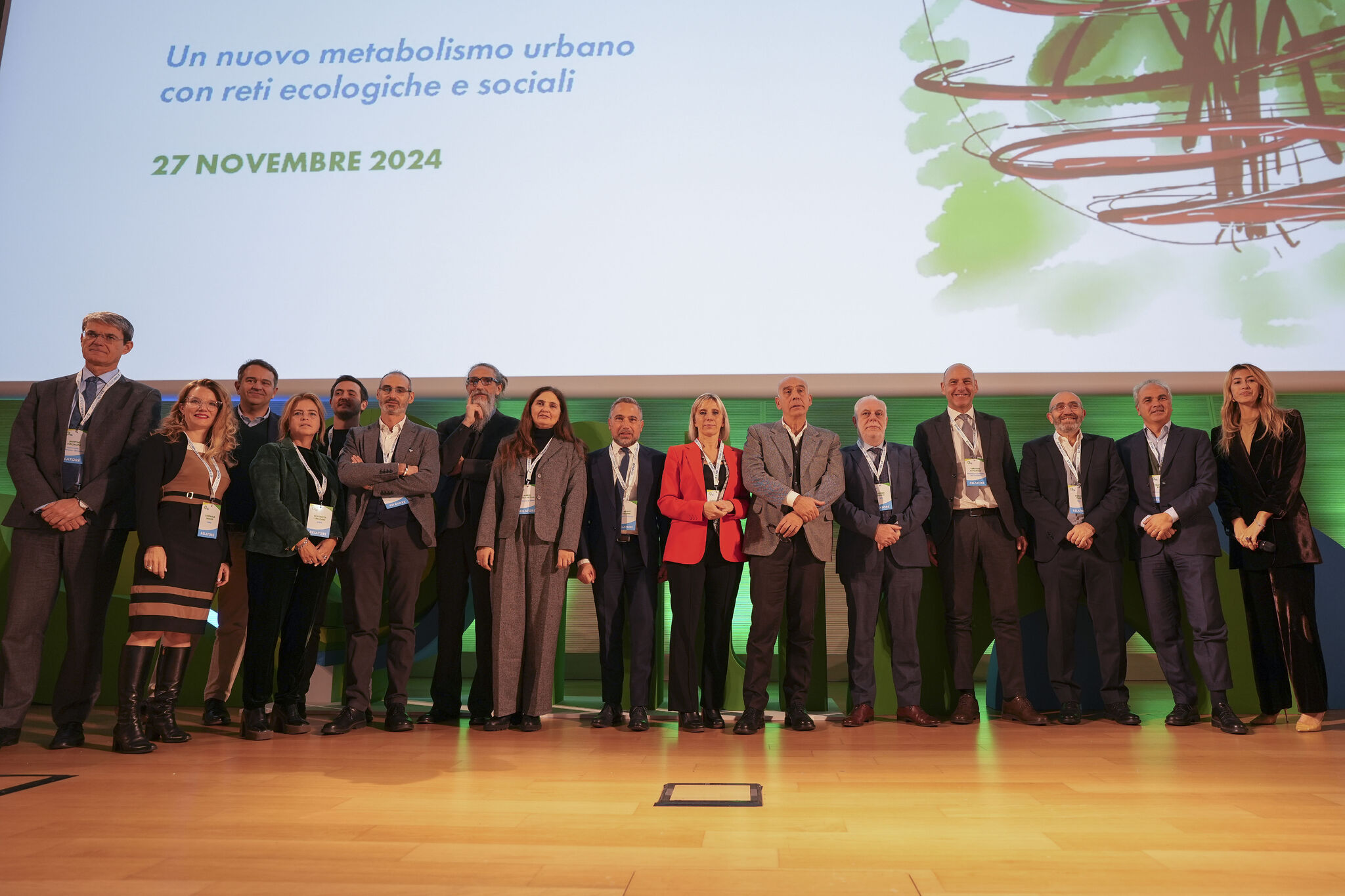
Group image at FILI event with all contributors. Image Courtesy FILI
LAND is proud to be part of this pioneering initiative, contributing its expertise in landscape design and strategic planning to unlock the hidden potential of Lombardy’s urban and natural spaces. FILI is not just a project—it’s a blueprint for the future of interconnected, resilient, and thriving territories.
